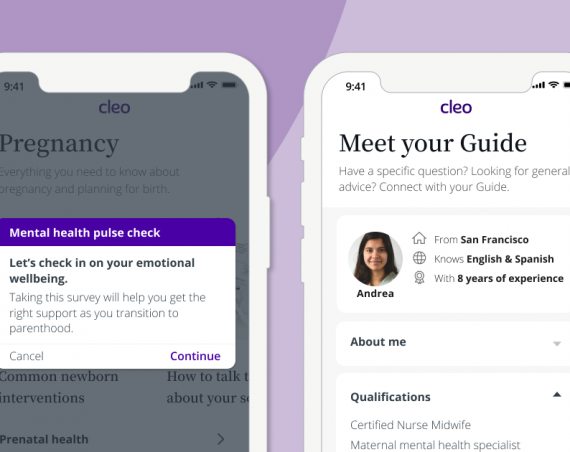A lot of girls grow up dreaming of the day that they will start their own family. Even if you didn’t grow up playing with dolls and dreaming of the day that you would have a baby of your own, starting your own family is really exciting.
When you and your partner decide that you want to start trying for a baby, it is really easy to assume that this is something that will happen instantly.

But for most people, this isn’t the case. Even for couples with perfect health, the chances of getting pregnant on the first try are only around 30%, so it is important to temper your expectations to avoid disappointment.
Most couples who are trying for a baby will be able to conceive during the first year of trying, so if this doesn’t happen for you, then you might be concerned about infertility.
There are lots of factors that impact fertility, and the only way to know for certain if you are infertile is to speak to your doctor.
However, if you are concerned about fertility, in this guide we’re looking at 5 signs that you might be infertile. Read on to find out more!
1. You Are Struggling To Conceive
The most obvious sign that you could be experiencing infertility is if you are struggling to conceive a baby. However, it is important to remember that there is a difference between not conceiving quickly, and infertility.
When you are trying to conceive (TTC), it is common for you to feel disappointed if you get your period after the first cycle of trying. However, remember that there is only around a 30% chance of this happening on the first try.
Technically speaking, you are only really struggling to conceive if you have been trying for a baby for over a year, and still haven’t conceived.
This could be caused by both male factor infertility (problems with fertility in the man) or female factor infertility (problems with fertility in the woman).
So, it is important to consult a doctor to run tests to identify the cause of your infertility. From there, you will be able to put a plan in place to help increase your chances of conceiving.
2. Irregular Periods
Some women don’t notice the signs of infertility until after they struggle to conceive. But one of the biggest signs of infertility is irregular periods. You will most likely notice this if you track your periods or ovulation.
The average menstrual cycle for a woman is between 28 and 32 days per month. Anything longer or shorter than this is considered to be an irregular cycle, and this could have an impact on your fertility.
If you have a regular cycle, then this is typically because you are ovulating regularly. If your cycle is irregular, then ovulation is likely irregular too. This means that normal methods used to conceive a baby might not work for you.
If your period is irregular, your doctor might recommend having sex every 2–3 days throughout your cycle, rather than targeting the ovulation window, to increase your chance of conception. Some medications and treatments can help this.

3. You Experience Intense Pain During Your Period
Another common sign that you might struggle with infertility is if you experience intense pain during your periods. For most women, getting their period isn’t comfortable. But, for some women, the pain is so intense it leaves them bed-bound.
If you experience debilitating pain during your period, then this could be a sign of an underlying health condition.
There are lots of conditions that can affect the uterus and reproductive system, and these all can have an impact on fertility.
A certain level of pain during the menstrual cycle is normal, but it shouldn’t prevent you from living your life and doing things that you want to do.
If you experience debilitating pain during your period, consult your doctor as it could impact your fertility.
4. Abnormal Periods
In addition to irregular periods potentially affecting your fertility, abnormal periods can also affect this. Abnormal periods are periods that are considered to be anything other than “normal”, but remember that “normal” is unique to you.
If you typically have a medium flow on your period, then if your period comes in lighter or heavier than normal, then this is abnormal.
Likewise, if your period typically only comes with symptoms such as back pain and sore breasts, if you start to experience new symptoms then this is considered to be abnormal.
Occasionally, abnormal periods might be considered “normal”. If you have recently come off hormonal contraception, then it might take a few cycles for your period to return to normal.
But if your period randomly becomes abnormal, it is worth seeking medical advice.
5. Your Menstrual Cycle Is Too Long or Too Short
If you notice that your menstrual cycle has suddenly grown longer or become shorter, then this could be a sign of infertility.
There are lots of different things that can impact your period as it is controlled by hormones. So, factors such as illness, stress, change in diet, and lifestyle change can impact your cycle.
This could cause your period to come early or late. Contraception and emergency contraception can also impact this.
If you notice that your cycle is starting to change in length significantly, and either growing longer or shorter, this could be a sign that you may experience infertility.
Regular cycles give you the best chance of conceiving, so anything that impacts the length of your cycle could impact your fertility.
Summary
In short, there are lots of signs that could indicate you might be experiencing infertility. The most obvious sign is that you haven’t conceived during the average 12 months that it takes for a couple to conceive a baby.
If you are struggling to conceive, then consulting your doctor is the best way to identify the problem and put a plan together.
However, the signs we have included in this guide might give you an idea of what could be impacting your fertility.
We hope this information has been helpful, thanks for reading!



